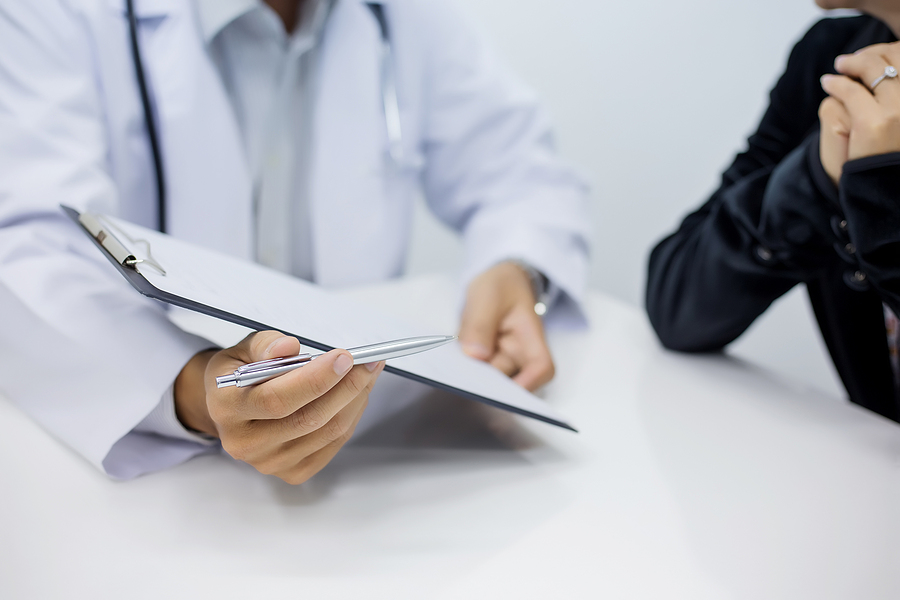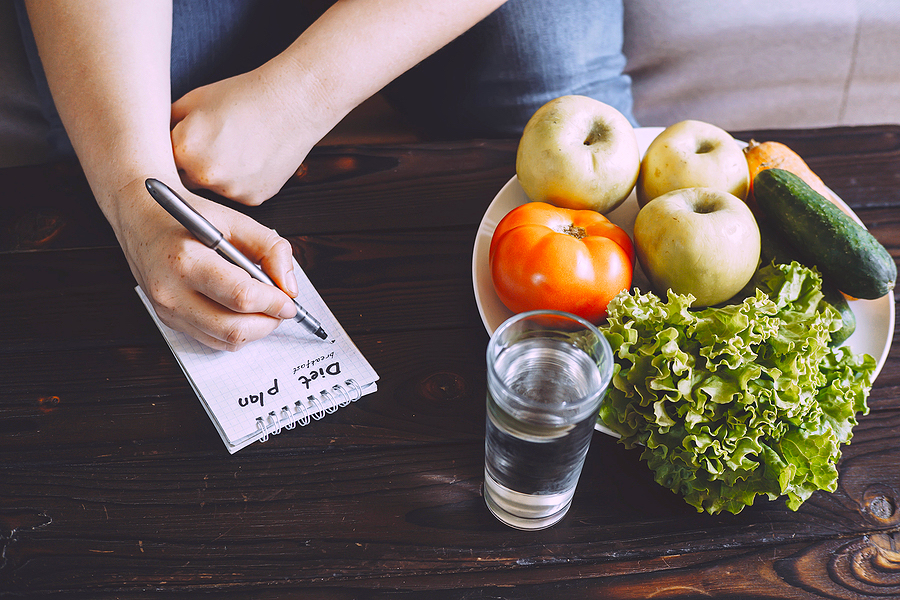Do you remember how it feels to fall in love? It’s exhilarating – and sometimes terrifying – to feel that physical response in your body. Your heart begins to race, your stomach turns somersaults, your face may flush and your palms sweat. You might find yourself actually weak-kneed at the sight of the one you love.
Have you ever wondered how love can inspire so many intense emotion, leaving you feeling euphoric one moment and in the depths of despair an instant later? Or how the tiniest shift in a loved one’s behavior can set off a chain reaction of highs and lows that you can actually feel coursing through your body?
Can romance really impact physical health? Anyone who has felt it will tell you the answer is a resounding “Yes!” Let’s take a look at the link between emotions and health. Plus, follow my tips to keep your relationships – and your body – healthy through the ups and downs.
The Roller Coaster of New Love
When you first fall in love, it can feel like riding an unfamiliar roller coaster. At first, there’s so many new experiences – twists, turns, and loop de loops. Getting to know someone can be filled with anticipation – like climbing a hill on that coaster – followed by a severe drop if things don’t go quite as expected. Over and over again, until you reach the end of the coaster – and either decide it’s not for you, or you can’t wait to ride it again.
Love is a complicated emotion that doesn’t operate in isolation, and in the beginning stages you can rapidly cycle through so many different feelings – joy and pleasure, frustration, jealousy, anxiety and sadness. And if all of these emotions are hitting you in rapid succession, you can start to question whether falling in love is worth it at all.
I know it can be scary to open yourself up to this whirlwind of emotions, but there are a lot of good reasons to keep trying until you find the right person to share your life with. The physical reactions you may get in conjunction with all those emotions are a great illustration of just how connected your emotional health is to your physical health. And if you close yourself off to love, you are likely to experience profound loneliness – which certainly won’t benefit your physical health. After all, it’s not just positive emotions that impact your health. When you feel poorly emotionally, you’re much more likely to have physical ailments as well. Let’s take a look at some of the ways emotions impact health.
What Research Says About Emotions and Health
I know from personal experience – and talking to plenty of friends and patients – how connected the way you feel emotionally can be to physical health – in both good and bad ways. So many women tell me that when they feel sad or lonely, they also experience pain, excessive fatigue, and anxiety. Conversely, they say, when they feel joy or contentment, they feel great physically as well. They have more energy, less aches and pains, and an overall sense of well being.
There’s plenty of research to back up this anecdotal evidence that emotions and health are linked. For example, a Finnish study published in November of 2016 found a link between heart disease and pessimism. In this study, the most pessimistic subjects were twice as likely to die of heart disease than those with the least pessimistic attitudes. On the flip side, a 2012 review of studies by Harvard researchers showed that optimism, life satisfaction, and happiness decrease the risk of cardiovascular disease. The most optimistic subjects showed a 50% reduced risk of initial cardiovascular event than their less optimistic peers, the authors said.
NIH scientists have found that positive emotions trigger “reward” pathways, while negative emotions can activate the amygdala, an area in your brain that impacts fear and anxiety.
There’s quite a bit of research on the poor health outcomes that can accompany loneliness. In fact, a 2015 review of research found that almost all of the studies reviewed found damaging effects of isolation or loneliness on health.
Positive emotions, however, have been demonstrated time and again to have a beneficial impact on health. A 2001 article on the role of positive emotions in psychology suggests that these positive emotions can build resiliency and coping skills.
But let’s get back to romance. What impact can being in love have on your health?
How Can a Good Romance Benefit You Physically?
Before we go too far, I have to say that there’s a big difference between the “honeymoon” amazing feelings of falling in love can go hand in hand with uncertainty, insecurity, and doubt. And those feelings can create stress, which in turn can mean an overproduction of stress hormones, which may leave you feeling lousy.
But there’s a lot of research that shows the positive impact of long term relationships and happy marriages. And these health benefits aren’t necessarily limited to only married couples – research also suggests that anyone who feels connected and supported through healthy social relationships of any kind – family or friends, for instance, can also reap the rewards of these positive feelings.
So what, specifically, can loving relationships do for your health? Let’s take a look:
Better Health Care Access, Less usage and Lower Costs
A 2007 review of research by the Department of Health and Human Services (HHS) found that marriage can increase access to health care by offering coverage through a spouse’s policy. This is particularly true for women.
The same review found that research supports a link between health care use and marriage, with married people making fewer visits to the doctor, having shorter average stays in the hospital, and reducing risk of admission to nursing homes. This lower use also means marriage is associated with lower health care costs.
Better Cardiovascular Health
There’s a wealth of research on the impact of marriage on heart health. A recent review of research found that people who had never married, were divorced, or had been widowed had a 42 percent increased risk of cardiovascular disease. These participants also had a 16 percent higher chance of developing coronary artery disease and were 55 percent more likely to die from stroke.
Lower Blood Pressure
Research has shown that happily married people have lower blood pressure than both singles and unhappily married couples. Those in unhappy marriages had the worst results, suggesting that it’s better to be in no relationship than an unhappy one.
Less Stress, Anxiety and Depression
That same report by HHS indicated that getting married – and remaining married – led to lower depression in both men and women. And research out of the State University of New York at Stony Brook using functional MRI (fMRI), has shown that loving, stable relationships can keep anxiety at bay by stimulating reward centers that release both dopamine and oxytocin.
Longer Life
Finding a loving life partner may well help you live longer. A large study published in 2006, that used data from the 1989 national health interview survey (NHIS) and the 1997 US national death index found that people who were married were likely to live longer, and never having been married was the strongest predictor of premature death.
Using the Power of Positive Relationships to Your Advantage
It’s clear from years of research that strong social connections and happy relationships can benefit both mental health and physical health. Simply put, when you feel good about your relationships, your body feels good too, but when your relationships aren’t satisfying, your health may suffer. So how can you use this knowledge to make sure your relationships are working for you, not against you? Here’s a few tips on using love to your advantage:
Ask Yourself Why You’re in the Relationship
That feeling of butterflies in your stomach at the thought of your partner, or knees weak with anticipation of your next meeting might be uncomfortable, but they are still good signs. But if your stomach is in knots thinking about going home to your partner, or you find yourself caught in a cycle of anger, it might be time to take a close look at whether or not the relationship is the right one for you. Examine what keeps you in a relationship – if it’s fear and anxiety instead of happiness and joy, it’s time to process, and perhaps move on.
Reconnect with Your Partner
If the blush of new love has long since passed, try to find ways to bring back those exciting feelings. Write love letters to let your partner know just what it is that you love about him/her; hold hands as you walk down a street; greet your partner with a hug – and hold on just a little bit longer than necessary. And of course, sex has been shown to reduce stress, so be sure to make time for intimate connections.
Accentuate the Positive
Your thoughts are more powerful than you might realize. Positive thoughts promote positive emotions, and postive emotions often lead to good health. So look for ways to feel great about your partnership. Take time to remember all the things that make you smile when you think about your partner. Remember, life is made up of the little moments – don’t miss them while waiting for the big events. Use your leisure time to do something that you both love – maybe a hike or outdoor activity, dancing, or cuddling on the couch to watch a movie.
Build Healthy Habits Together
A healthy lifestyle is the best way to achieve overall good health. You and your partner can keep each other moving forward, whether it’s by quitting a bad habit or picking up agood one. Nutrition is a great place to start! What you put into your body makes a big difference in how you feel. And if you’re building healthy eating habits together, you’ll be less likely to stick to it. Likewise, if you take up some form of exercise you both enjoy and participate together, you’ll not only be moving more, but connecting on another level too.
Related Article: Emotional Eating: What is Your Relationship with Food?
Remember – the Quality of the Relationship Counts!
It’s worth mentioning once again that not all relationships will promote good health. While studies show a wealth of health perks from good relationships, research also shows that unhappy relationships carry greater risk of heart problems, depression and a weakened immune system. One long term study of more than 10,000 subjects revealed that subjects in negative relationships had greater risk of heart problems, including fatal cardiac events, than those who had positive close relationships.
The goal, then, is to leave stressful relationships behind while seeking out a stable, long term, loving relationship.
Happy Relationship, Healthy Life
I want you to get the most out of your life and your relationships. That’s why it’s so important to know what a good relationship can give you – and what a bad one can take from you. It’s worth taking some time to understand how your emotions affect your health. Once you do, you can seek out the relationship you deserve, and see how great it can feel!
References:
https://www.webmd.com/sex-relationships/features/health-benefits
http://time.com/5136409/health-benefits-love/
https://www.naturalhealers.com/holistic-health/health-benefits-love/







